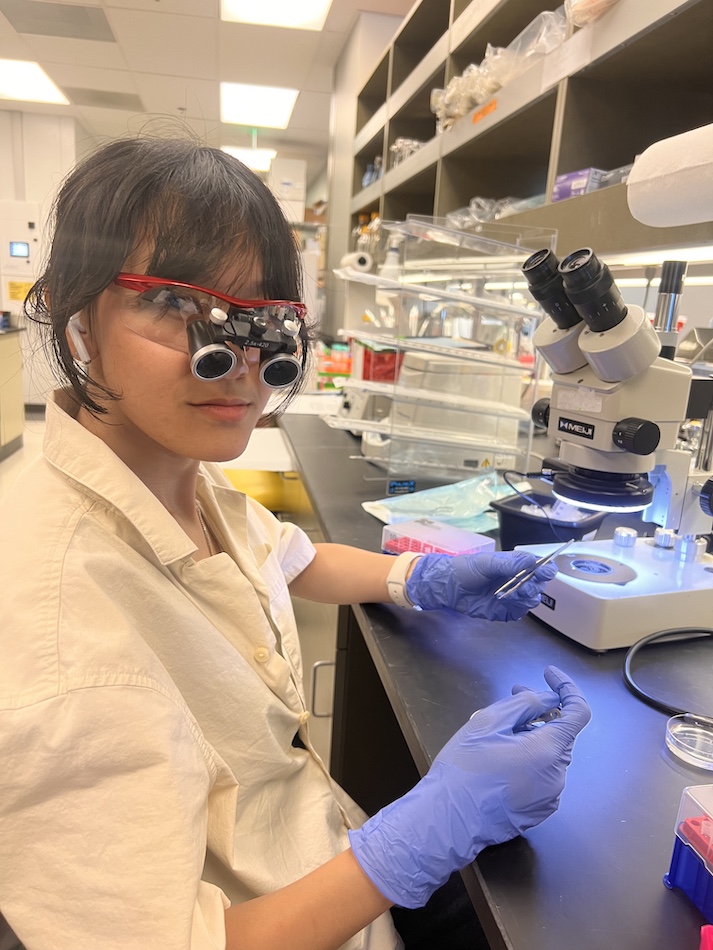Virologist Rúbens Alves, Ph.D., came to La Jolla Institute for Immunology (LJI) to contribute to life-saving vaccine research. As a member of LJI’s Shresta Lab, Alves studied how T cells fight viruses such as SARS-CoV-2 (which causes COVID-19) and dengue virus.
As a postdoctoral researcher at LJI, Alves published important findings in Nature Communications that shed light on how the immune system cross-reacts to SARS-CoV-2 and common cold coronaviruses. In 2023, he also co-led the team that won top honors in the Nucleate Activator competition for a proposal to advance dengue and Zika virus vaccine strategies.
Alves recently returned to his home country of Brazil to serve as a principal investigator (PI) at the Institut Pasteur de São Paulo. He is now leading an innovative project on wastewater surveillance for influenza viruses. Monitoring wastewater gives Alves and his team a chance to quickly identify which influenza viruses threaten public health.
In this Q&A, Alves shares what he learned at LJI—and how his research in São Paulo may advance influenza vaccine development.
Q: How is your research on wastewater connected to vaccine development?
Alves: Right now, people develop influenza vaccines based on data from influenza viruses that were circulating a few months ago. But these viruses are changing all the time.
We can look at wastewater and find viral sequences—bits of genetic material from viruses that are circulating right now in the human population. That’s important because it lets us do real-time surveillance to see which influenza viruses are emerging and how they might be mutating.
My goal is to use these viral sequences as guides for quickly developing RNA-based vaccines against influenza viruses as they spread—not months afterward. We want to use this as a “proof of concept” that you can use viral sequences from wastewater to update vaccines.
Q: If this project succeeds, how could your findings improve global health?
I hope our approach can work as a model for wastewater surveillance in big cities around the world. Can we see how a virus is moving through the city? Can we tell if an influenza outbreak is growing? Can we launch better interventions to stop these outbreaks? We need to combine these research efforts to prevent future pandemics.
This is especially important as we see new influenza species, such as H5N1, emerging. This virus is spreading mainly in wildlife and livestock, but we have to be prepared for it. That’s an example of why we need to know how to monitor viruses in the population and update our vaccines.
Q: How did your training at LJI prepare you to lead this project?
I had the opportunity to work in LJI’s BSL-3 [high containment] facility during the pandemic. This was a lot of pressure—but at the same time, we were working on vaccines to try to prevent disease. My PI, LJI Professor Sujan Shresta, Ph.D., also encouraged me to work on new vaccine platforms. Her laboratory has developed a new self-replicating RNA vaccine platform, and we applied that to different viruses, such as dengue virus or Zika virus.
It wasn’t just about the science either. I received a lot of mentoring and encouragement from Dr. Shresta and other scientists at the Institute.
Q: How do you feel about returning to Brazil and taking on this PI position?
It’s exciting to be back! This is really a full-circle moment. I knew that after I went to the United States, I wanted to come back to Brazil to improve research and apply what I know.
I feel really motivated to help people in my country and pass along what I know to the next generation. I am carrying both the scientific knowledge and values from the Shresta lab—I want my students and postdocs to be even more successful than I was!


